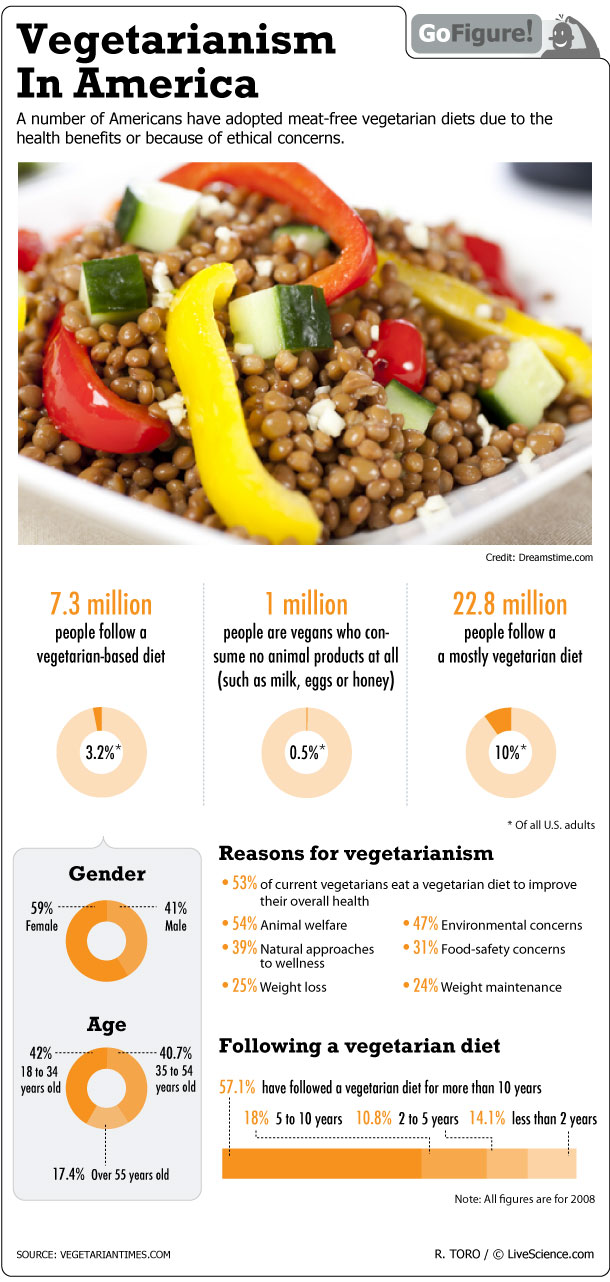Vegetarians and Vegans (Infographic)

Being a vegetarian or a vegan can mean many things, with definitions, reasons for the chosen diets and preferred menus varying from person to person. As such, the level of health imbued by veganism, say, also varies.
While no universal definition of veganism exists, the term stems from the idea that humans should live without killing or exploiting animals; this means no meat, eggs, milk and, for many vegans, even honey since the bees work for us. So-called ethical vegans extend this doctrine to include all animal products, and so avoid leather, beeswax candles and even bone China porcelain.
According to LiveScience's Bad Medicine Columnist Christopher Wanjek, "Veganism is one of the healthiest dietary lifestyles ... if done properly. It is also one of the unhealthiest diets in town if not done properly, which is often the case."
The diet can be unhealthy if vegans don't get sufficient amounts of needed nutrients only found in animal products, including high-quality protein, healthy omega-3 fatty acids (in fish), calcium, iron, zinc and vitamin B12. "This means that, as a vegan, you need to become skilled in omega-3 fatty acids, for which there are few other than flaxseed; and a variety of protein-containing foods every day such as rice, beans and lentils, to be sure you are getting a complete protein," Wanjek writes. Or you can take these in pill form.
And for vegans who aren't the best cooks or savvy at preparing satisfying non-animal foods, the result can be a craving for more. In that way, some fall back on the same junk as meat eaters, including crackers, potato chips, sugary breakfast cereals and other unhealthy snacks.
Sign up for the Live Science daily newsletter now
Get the world’s most fascinating discoveries delivered straight to your inbox.

